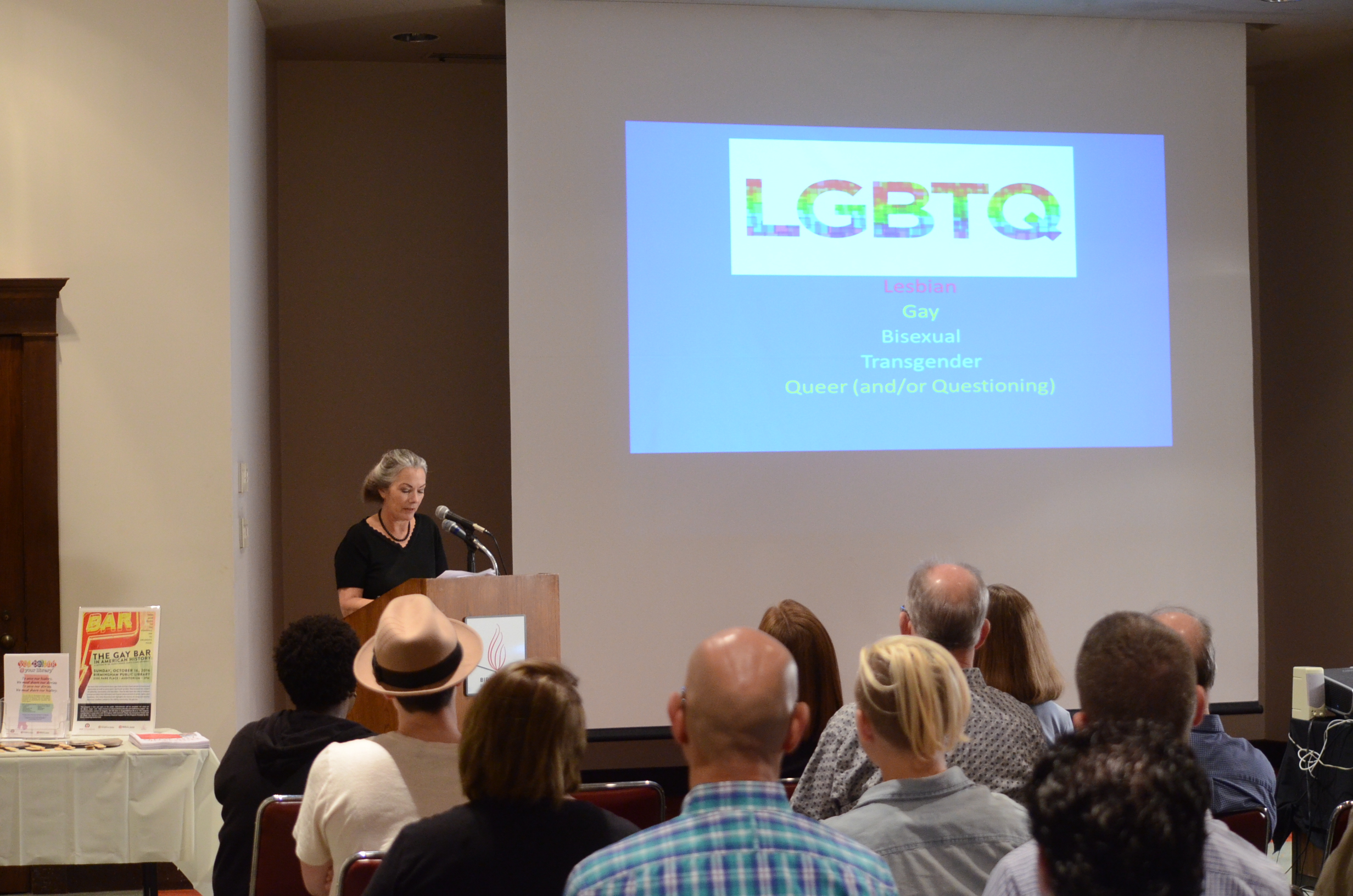 Nancy Unger speaks to a crowd at the Birmingham Public Library about LGBTQ roles in history. Photo by Ian KeelJordan McGill - Staff Writer
Nancy Unger speaks to a crowd at the Birmingham Public Library about LGBTQ roles in history. Photo by Ian KeelJordan McGill - Staff Writerjmcgill@uab.edu
On Sunday, Oct.16, Nancy Unger, Ph.D., of Santa Clara University came to Birmingham to speak on the role the LGBTQ community has played in American history.
The lecture was held at the Birmingham Central Public Library in the Arrington Auditorium. C-SPAN broadcasted the event as part of American History TV. Birmingham’s AIDS Outreach, Magic City Acceptance Center and Magic City Wellness Center presented the event to the community.
The lecture was held to promote the need for donations to the public library’s LGBTQ archives, as well as to convey the role this group had in shaping contemporary America.
“I’m really trying to make the argument that gay and lesbian history is part of American history, it’s not some little add-on,” Unger said. “This is a history that all of us need to know and understand to really understand the rich history we have as a nation.”
Unger said she has not met too much resistance in finding people who are genuinely interested in the history and being able to teach those who want to learn. She works at a private Catholic University and has received only one formal complaint about her class.
“I didn’t know if my students at this Catholic institution would take my course,” Unger said. “I’ve taught it twice a year every year since 2004 and it always fills, there’s always a waiting list and it’s always been a class that I’ve really enjoyed so in some ways it’s been a lot less fraught than I thought it would be.”
When asked about international influences on American LGBTQ history, Unger said that there is still progress to be made in advancing knowledge on the topic.
“Certainly the Germans were at the vanguard of talking about history and there’s a lot of work being done on international topics, but most of it is present day,” Unger said. “Most of what I know is coming from Americans who are traveling in different parts of the world and what they’re reporting back about the sort of gay bars in different countries, and there’s a whole piece of gay and lesbian history that I don’t know anything about and I have to keep learning.”
The lecture was organized by Jim Baggett, the head archivist in the Archives Department of the Birmingham Public Library.
“At the beginning of World War II, there was virtually no effort to keep the gays out. We only start to see the discrimination [against LGBTQ people] after the turning point in the war. In this way, it is particularly unfair,” Unger said.
Unger referenced Frank Hanley as a source of inspiration in the gay rights movement. Hanley served in World War II and went to Harvard for a Ph.D. in astronomy, but he was fired during the Cold War because he was gay. He took his case to the Supreme Court.
“Hanley said, ‘Look at the Civil Rights Movement- you don’t see people saying we should end discrimination by bleaching our skin. Look at the antisemitism movement. You don’t see people asking to be accepted after converting to Christianity. Quit being apologetic and stand up for who you are,’” Unger said. “Like any disease it requires understanding, not punishment. You see this over and over in history prior to the more recent laws.”
The department is currently working on collecting documents regarding the LGBTQ community in Birmingham to add to their archives, and is looking for donations.


